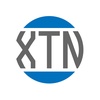In recent years, the intersection of life sciences and healthcare has fostered a prolific ground for innovation, particularly in the development of new therapies. This synergy is propelled by collaborations between various sectors such as biotechnology firms, pharmaceutical companies, academic institutions, and healthcare providers. This article delves into how these collaborations are reshaping the landscape of healthcare by driving forward innovative therapies, offering hope for more effective treatments for various diseases.
The Convergence of Life Sciences and Healthcare
Emerging Trends
The integration of life sciences and healthcare has led to a transformative approach in medical research and patient care. Key trends include precision medicine, personalized healthcare, and the use of big data analytics and artificial intelligence (AI) to decipher complex biological information. These trends underscore the shift from a one-size-fits-all model to more targeted, individualized treatment options.
Impact on Drug Development
Collaborations in this sphere have significantly accelerated drug development processes. By combining expertise from life sciences with insights from patient care, researchers can more effectively identify disease mechanisms and potential therapeutic targets. This collaboration has led to the development of targeted therapies, particularly in oncology, where treatments are increasingly focused on the genetic profile of the tumor rather than just the cancer type.
Collaborative Models in Healthcare Innovation
Industry-Academia Partnerships
Universities and research institutions are treasure troves of innovative ideas and groundbreaking research. When these academic insights are combined with the practical, market-oriented approach of the industry, it leads to a potent mix that can drive therapeutic innovations. For instance, academic researchers might discover a new molecular pathway that can be targeted for disease treatment, and pharmaceutical companies can then develop drugs that specifically target this pathway.
Cross-Sector Collaboration
The healthcare sector is increasingly collaborating with non-traditional partners such as technology companies. These partnerships leverage cutting-edge technologies like AI, machine learning, and big data analytics to understand diseases better and develop more effective treatments. For example, AI algorithms can analyze vast datasets to identify potential drug candidates much faster than traditional methods.
Government and Non-Profit Involvement
Governments and non-profit organizations play a crucial role in fostering these collaborations. They often fund early-stage research, provide platforms for collaboration, and support regulatory frameworks that encourage innovation. Initiatives like the Cancer Moonshot in the United States are prime examples of how government involvement can accelerate the development of new cancer therapies.
Challenges and Solutions in Collaborative Efforts
Navigating Intellectual Property Issues
Collaborations in life sciences and healthcare often face challenges around intellectual property (IP) rights. To address this, clear agreements and understanding of IP ownership, particularly in industry-academia partnerships,
are essential. These agreements must balance the interests of commercial entities seeking to protect their investments and academic institutions looking to disseminate knowledge widely.
Data Sharing and Privacy Concerns
The use of big data in healthcare raises concerns about patient privacy and data security. Collaborative efforts must ensure compliance with regulations such as HIPAA (Health Insurance Portability and Accountability Act) in the U.S. and GDPR (General Data Protection Regulation) in the EU. Developing robust, secure data-sharing platforms can facilitate the safe exchange of information while safeguarding patient privacy.
Overcoming Funding Hurdles
Securing funding for collaborative research can be challenging, particularly for projects that are high-risk or have a long path to commercialization. Governments, private investors, and philanthropic organizations play a crucial role in bridging this gap. Innovative funding models, such as public-private partnerships, can provide the necessary resources while distributing risk among stakeholders.
Case Studies: Success Stories in Collaborative Therapies
CAR T-cell Therapy
A prime example of successful collaboration is the development of CAR T-cell therapy, a breakthrough in cancer treatment. This therapy, which involves genetically modifying a patient's T-cells to attack cancer cells, emerged from decades of research in academic institutions, with subsequent development and commercialization by biopharmaceutical companies. This collaboration has led to life-saving treatments for certain types of leukemia and lymphoma.
COVID-19 Vaccines
The rapid development and deployment of COVID-19 vaccines highlight the power of global collaboration. Pharmaceutical companies, governments, and international health organizations came together to achieve what seemed impossible: developing effective vaccines within a year of the virus's emergence. This effort demonstrated the potential of collaborative approaches in responding to global health crises.
Future Prospects: The Road Ahead
Integrating Emerging Technologies
The future of life sciences and healthcare collaborations will likely see greater integration of technologies like AI, blockchain, and the Internet of Things (IoT). These technologies can enhance drug development, improve patient monitoring, and streamline healthcare delivery, leading to more efficient and personalized care.
Fostering an Ecosystem of Innovation
Building an ecosystem that nurtures innovation involves creating supportive policies, investing in education and research, and encouraging interdisciplinary collaboration. Such an environment can accelerate the development of new therapies and ensure that the benefits of scientific advances reach patients more quickly.
Addressing Global Health Challenges
Collaborations in life sciences and healthcare can play a pivotal role in addressing global health challenges such as emerging infectious diseases, antibiotic resistance, and chronic illnesses. By pooling resources and expertise, the global community can develop more effective strategies to tackle these pressing health issues.
Holon Solutions: Revolutionizing Healthcare with Human-Centered Technology
In a landscape often dominated by technical complexities and depersonalized care, Holon Solutions stands out as a beacon of innovation and human-centric technology in the healthcare sector. This conclusion explores the transformative impact of Holon on the healthcare industry, underlining its commitment to reviving the human element in healthcare services.
Pioneering a Unique Approach in Healthcare Technology
At the heart of Holon Solutions is the philosophy of the "holon" - an embodiment of unity, signifying something that is both an independent entity and a part of a larger system. This concept is not just a namesake but the core ethos driving Holon's mission to enhance human connections in healthcare through advanced technology. The company pioneers a unique approach, transcending conventional product offerings by creating a space that streamlines healthcare with tailored tools designed to simplify intricate processes.
Harnessing Advanced Technology to Combat Burnout
Holon's sophisticated platform, equipped with proprietary sensor technology, is a game-changer in the healthcare industry. It adeptly aggregates patient data from diverse sources, integrating it seamlessly into individualized clinical workflows. This strategic automation is a significant step towards combating the common issue of professional burnout among medical practitioners. By conserving valuable time, Holon enables healthcare professionals to refocus on what truly matters - delivering superior patient care.
Mitigating Administrative Strain in Healthcare
What distinguishes Holon in the competitive landscape is its relentless effort to mitigate the overwhelming administrative tasks that healthcare professionals face daily. The company harnesses the power of smart technology and intuitive design to introduce customized tools, services, and insights. This dual-faceted focus not only demonstrates tangible business returns but also underscores the profound impact on human interactions and outcomes in healthcare.
Optimizing Healthcare Processes through the Holon Community
A cornerstone of Holon's approach is the Holon Community, designed to optimize healthcare processes. This initiative streamlines the delivery of patient data from numerous sources to any care point, integrating effortlessly with existing infrastructures and procedures. The result is an enhancement in professional fulfillment and more time dedicated to patient-centric care, a testament to Holon's commitment to improving the quality of healthcare delivery.
Fostering Innovation with a Human Touch
Innovation is woven into the fabric of Holon's ethos, prominently featured in its Innovation Lab. Here, teams are empowered to explore limitlessly, leveraging technology and intuitive design to emphasize the human aspect of healthcare services. Holon's foundational principles of bold thinking, simplification, customer empathy, agile responses in a SaaS environment, and the humanization of every exchange, guide this exploration. This mindset accelerates the introduction of revolutionary solutions, mirroring Holon's drive to initiate transformative changes in the healthcare sector.
Conclusion
Holon Solutions' relentless pursuit to innovate healthcare experiences is a testament to its vision of bringing a more humane touch to healthcare innovation. The company addresses critical issues like professional burnout, reduces administrative strain, and enriches patient care. Holon stands as a paradigm of how technology, when thoughtfully applied, can not only streamline healthcare processes but also reinvigorate the human connections at the heart of healthcare. As Holon continues to blaze trails in the industry, it sets a new standard for how healthcare technology can and should operate – with the human element at its core.


No comments yet